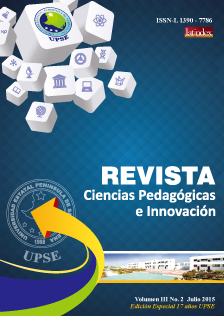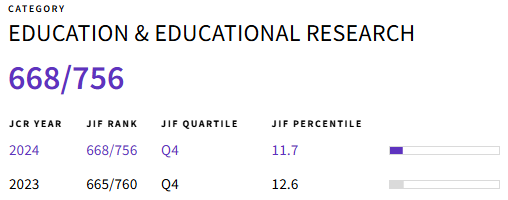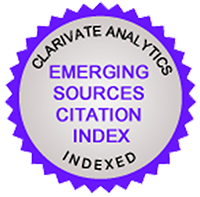Administrative sustainability of family businesses Babahoyo educational sector.
DOI:
https://doi.org/10.26423/rcpi.v3i2.95Keywords:
management, administrative sustainability, management family business, educative companiesAbstract
Companies, regardless of size, have a common desire, endure indefinitely in their sector; however, on occasion, internal aspects, avoid the sustainability of companies, leading them to decline, especially when management does not fall within an appropriate management system. Family businesses have a characteristic that distinguishes them from other businesses, this is the need to establish a sustainable management system that positively linked to family labor and management environment, and that this linkage is not a barrier to achieving the sustainability of business. This study focuses on family businesses Babahoyo educational type, in order to evaluate the relationship between quality management, administrative sustainability. For this a mainly quantitative research methodology used, analyzing secondary data, studying the current situation of the sector, and researching theoretical documents of interest. Finally, we obtained the result that is required to establish administrative structures strengthened in educational institutions of familiar character, containing a Council of Government to manage important administrative aspects, based on a system of quality management adapted to the needs and characteristics Company.
Downloads
References
Arosa, B., Maseda, A., Iturralde, T. Empresa Fa - miliar. Familia Empresaria y Empresa Familiar: Estructuras de Gobierno. Universidad del País Vasco. España. (2010).
Bäckström, I., Larsson, J., & Wiklund, H. Are heal - thy and successful organizations working accordingly to quality management? International Journal of Workplace Health Management, (2009). 2(3), de la página 245 a la 257.
Bagheri, G., Hassan, Z. M., & Amighi, F. The relationship between empowerment and organizational citizenship behavior of the pedagogical organization employees. Iranian Journal of Management Studies, (2011). 4 (2), de la página 53 a la 62.
Baptiste, N. R. Tightening the link between employee wellbeing at work and performance. Management Decision, (2008). 46(2), 284-309.
Chakrabarty, S The Influence of National Culture and Institutional Voids on Family Ownership of Large Firms: A Country Level Empirical Study Journal of International Management. (2009)
Chiavenato, I. Administración de recursos huma - nos. Quinta Edición ed. Mc Graw Hill. (1999).
Chiavenato, I. Introducción a la teoría general de la administración. McGrawHill Interamericana. Séptima edición, (2004). p. 10.
Corbett, D. Excellence in Canada: Healthy organizations - achieve results by acting responsibly. Journal of Business Ethics, (2004).55(2), de la página 125 a la 133.
De Smet, A., Loch, M., & Schaninger, B. Healthy organizations. Leadership. Excellence, 24(9), (2007). de la página 14 a la 15.
Dikkers, J. S., Jansen, P. G., Lange, A.,H., Vinken - burg, C. J., & Kooij, D. T. Proactivity, job charac - teristics, and engagement: A longitudinal study. Career Development International. (2010).
Drucker, P. The Practice of Management. (1954).
Drucker, P. Management: Tasks, Responsibilities and Practices. (1973).
Hinojosa, M. Teoría y pensamiento administrativo. (2002).
García, R., y García, M. Estructura del consejo de administración en la empresa familiar versus no familiar. Artículos Doctrinales. Revista española de financiación y contabilidad. Vol. XL, n.º 149, (2011). de la página 35-64.
Goetzel, R.Z.,Guindon, A.M.,Turshen, I.J., & y Ozminskowski, R.J. Health and productivity management: Establishing key performance measures, benchmarks, and best practices. Journal of Occupational and Environmental Medicine, 43 (1), (2001). de la página 10 a la 17.
IESE Razones para tener consejo de administración. Newsletter de la Cátedra de Empresa Familiar Nº 05. Publicaciones de la Cátedra de Empresa Familiar. Extraído del capítulo 2 del libro “La empresa familiar 7: Consejos de administración”. (2001).
International Standarization Organization Sistemas de gestión de la calidad, ISO 9001-2008. Requisitos generales. (2009).
Kets, M. Family Business: Human Dilemmas in the Family Firm. London: International Thompson Business Press. (1996).
Kachaner, N., Stalk, G., & Bloch, A. What You Can Learn from Family Business. Harvard Business Review. (2012)
Luthans, F. The need for and meaning of positive organizational behavior. Journal of organizational behavior, 23 (6), (2002). de la página 695 a la 706.
Luthans, F. Positive organizational behavior: implications for leadership and HR development and motivation. In L. W. Porter., G. A., Bigley., & R. M., Steers. (Eds.), Motivation and work behavior. New York: McGraw-Hill/Irwin. (2003).
Maslow, A. H. Motivation and Personality. New York: Harper. (1954).
Manzoor, Q. Impact of employees motivation on organizational effectiveness. Business Management and Strategy, 3 (1), (2012). de la página 1 a la 12.
Maslow, A. El management según Maslow. John Wiley & Sons Inc., traducido y publicado en castellano por Ediciones Paidos Ibérica S.A. Barcelona. (2005).
Paniagua, C. Principales escuelas del pensamiento administrativo. EUNED. ISBN 9977-64-152-8. Costa Rica. (2005).
Quintana, J. (2012). Guía práctica para el buen gobierno de las empresas familiares. Instituto de la empresa familiar. España.
Rich, B. L. Job engagement: Construct validation and relationships with job satisfaction, job involvement, and intrinsic motivation. University of Florida. ProQuest Dissertations and Theses, (2006). de la página 1 a la 197.
Salanova, M. Organizaciones saludables y desarrollo de recursos humanos. Revista de Trabajo y Seguridad Social, CEF, 303, (2008). de la página 179 a la 214.
Suñol, R. Las empresas familiares y el capital riesgo: un acercamiento provechoso. Harvard Deusto Finanzas & Contabilidad nº 63. (2004).
Taylor, F. Los Principios de la Administración Moderna. (1911).
Terry, G. Principios de administración. Editorial Continental S.A. México. (1974).
Ward, J., Developing Effective Ownership in the Family-Controlled Business. Directors Monthly. 25(2001). Wright, T. A. Positive organizational behavior: An idea whose time has truly come. Journal of Organizational Behavior, (2003). de la página 437 a la 442.
Zaratiegui, J. La Gestión por procesos: Su papel e importancia en la empresa. Revista Economía Industrial. (1999).
Randel, C., Ward, J. Strategic Planning for the Family Business: Parallel Planning to Unify the Family and Business. London: Palgrave Macmillan. (2001).
Randel, C., Kets, M., & Florent, E. Family Business. International Encyclopedia of Organizational Studies. (2007).
Randel, C., Ward, J. When Family Businesses are Best. London: Palgrave Macmillan. (2010).
Downloads
Published
Issue
Section
License
El titular de los derechos de autor de la obra, otorga derechos de uso a los lectores mediante la licencia Creative Commons Atribución-NoComercial-CompartirIgual 4.0 Internacional. Esto permite el acceso gratuito inmediato a la obra y permite a cualquier usuario leer, descargar, copiar, distribuir, imprimir, buscar o vincular a los textos completos de los artículos, rastrearlos para su indexación, pasarlos como datos al software o usarlos para cualquier otro propósito legal.
Cuando la obra es aprobada y aceptada para su publicación, los autores conservan los derechos de autor sin restricciones, cediendo únicamente los derechos de reproducción, distribución para su explotación en formato de papel, así como en cualquier otro soporte magnético, óptico y digital.

















